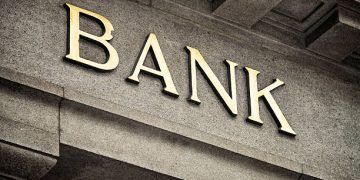Despite domestic and global economic challenges, six Domestic-Systemically Important Banks (D-SIBs) with operations across Africa have provided approximately N76.9 trillion in loans to customers between 2021 and 2023, according to findings by THISDAY. An analysis of the banks’ financial reports for the period shows that Ecobank Transnational Incorporated (ETI), Access Holdings, and Zenith Bank granted the highest loans to key sectors such as Oil & Gas, Manufacturing, Power, Small & Medium Enterprises (SMEs), Real Estate, and Information and Communication, among others. The six D-SIBs include Ecobank Transnational Incorporated (ETI), United Bank for Africa (UBA), Access Holdings Plc, Zenith Bank Plc, FBN Holdings Plc, and Guaranty Trust Holdings Company Plc (GTCO).
In 2023 alone, the six D-SIBs granted N36.8 trillion in loans to customers, representing a 67.3% increase from N21.99 trillion in 2022, which had grown from N18.11 trillion in 2021. In addition to loans to key sectors, the six D-SIBs generated N6.06 trillion in profit before tax and N5.05 trillion in profit after tax over the three years, despite challenges such as elevated interest rates in Nigeria and other sub-Saharan African countries. Inflationary pressures eased gradually through 2023 as monetary policy interventions across the continent took effect. However, downside risks, including structural weaknesses and exchange rate pass-through, remain. During the review period, ETI’s total loans and advances to customers increased to N19.17 trillion, while Access Holdings recorded N17.3 trillion in loans and advances to customers between 2021 and 2023.
Over the past three years, Zenith Bank has provided a total of N13.9 trillion in loans; FBN Holdings, N13.03 trillion; UBA, N7.29 trillion; and GTCO, N6.17 trillion in loans and advances to customers. Subsidiaries of these D-SIBs in Nigeria and other West African countries have driven robust growth in loans to customers during the period. For example, Access Bank Nigeria granted N5.37 trillion in loans and advances to customers in the 2023 financial year, up from N4.08 trillion in the 2022 financial year. GTBank Nigeria’s loans and advances to customers closed the 2023 financial year at N2.03 trillion, which is 82% of the N2.48 trillion granted in 2022. Further findings revealed that the six D-SIBs have not consistently complied with the Central Bank of Nigeria (CBN) Loan-to-Deposit (LDR) policy, which mandates lending to key real sectors. The LDR policy, aimed at triggering growth in a weak economy, initially required a minimum LDR of 60%, later increased to 65%.
In 2023, Zenith Bank declared an LDR of 46.5%, compared to 45.9% in 2022, while GTCO’s loans-to-deposits ratio dropped to 38.11% in 2023 from 42.89% in 2022. FBN Holdings declared an LDR of 62.2% in 2023, up from 55.2% in 2022, while ETI’s loans-to-deposits ratio was 53.9% in 2023, down from 55.40% in 2022. David Adnori, Vice Chairman of Highcap Securities Limited, commented that financial institutions are playing a critical role in Africa’s economic development, impacting both the continent and global trade. He noted that Tier-1 banks are cautious about lending to the real sector due to concerns over non-performing loans (NPLs). The CBN, acknowledging a significant increase in gross credit by deposit money banks (DMBs), decided to retain the minimum 65% LDR in 2023 but reduced it to 50% in April 2024 to align with ongoing monetary tightening.
The CBN stated that this reduction aims to maintain strong risk management practices while allowing banks to expand their credits to businesses and individuals. The policy adjustments are intended to support the continued monitoring and development of the banking sector’s lending practices.
Discover supply chain news insights on The Supply Chain Report. Enhance your international trade knowledge at ADAMftd.com with free tools.
#SupplyChainNews #SMEs #RealEstateNews #MonetaryPolicy #CBN















